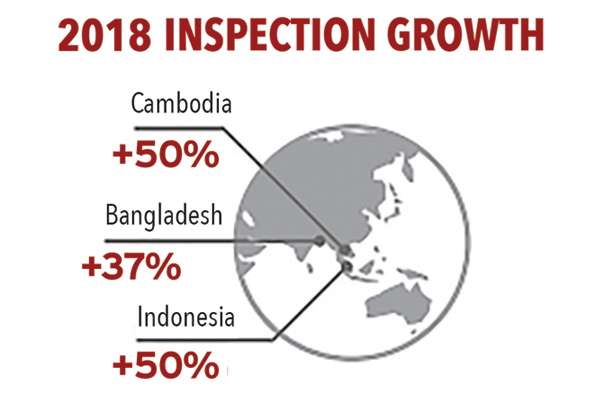The trade tensions between the United States and China in 2018 have initiated significant shifts in global sourcing practices, potentially posing challenges to ethical standards and quality control measures, as highlighted in a recent report by QIMA, a leading provider of global quality control and supplier compliance services.
According to QIMA’s year-end survey involving over 100 businesses worldwide, the trend of geographic sourcing diversification away from China is already in motion. A substantial 75% of respondents have either begun sourcing from new markets or have plans to do so imminently.
These emerging markets include countries with less advanced manufacturing sectors and infrastructure compared to China, such as Indonesia, Cambodia, Bangladesh, Turkey, and Vietnam. However, these regions still grapple with issues related to factory compliance, workers’ rights, safety standards, waste management, and quality control, as indicated in the report.

QIMA’s findings reveal that countries like Vietnam, Indonesia, and Turkey experienced a decline in average factory scores in 2018, with Vietnam recording the most significant decrease at -5.1%, followed by Indonesia (-3.2%) and Turkey (-3.1%).
Despite these challenges, many global brands are proactively addressing the risks associated with shifting sourcing markets. QIMA has observed a notable increase in requests for inspections and audits, particularly in emerging markets like Indonesia and Cambodia, where demand surged by over 50%.
Moreover, QIMA’s audit data spanning back to 2016 indicates a gradual improvement in ethical scores within the textile and apparel sector. This upward trend underscores the growing emphasis on transparency and ethical accountability within global supply chains, driven largely by consumer expectations for responsible sourcing practices.
